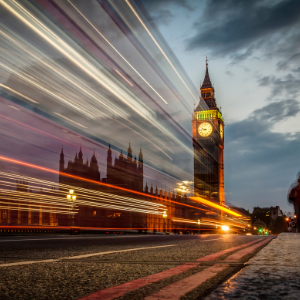As we look to the years ahead, predicting the future is perhaps more difficult now than ever. With the economic situation remaining in part, tied to the pandemic, there is an eerie sense of déjà vu. The situation now, however, is far more complicated. Whilst on the one hand, we are still experiencing uncertainty around restrictions (despite the rollout of mass vaccination programmes), on the other; there are of course unprecedented levels of political uncertainty to factor in. Throw into the mix spiralling inequality, rising energy bills, hybrid/remote working, interest rate rises, increasing inflation – and the continued effects of Brexit; have we really passed ‘peak countryside’? Phil Spencer, for what it’s worth, thinks so, having predicted things that things will do well in London in 2022, with people moving back into flats. “All the things that cities are brilliant for — restaurants, clubs, theatres — are up and running,” he said. Whilst true; it’s still unclear what will happen to house prices, the central area’s residential population, or indeed the capital’s population/distribution at large.
London’s prime market seems set to thrive
According to Halifax, average property value in London has risen by 5.4% in the two years since February 2020, just before the start of the Covid-19 pandemic, with the annual growth figure being the capital’s highest since the end of 2020.
Although a modest recovery overall, the demand for luxury homes in the capital is indicating that 2022 may be the best year for London’s prime market in over five years, with Knight Frank having forecasted a growth of 7% in average prices of prime London property this year.
Whilst positive (at least currently) for certain homeowners; with both interest rates and inflation rising – and energy bills due to skyrocket, the financial pressures faced by many households could result in decreased demand overall. Stretching finances to get on to the property ladder might well feel like a step too far for many. It’s difficult to see too how the rental market could avoid being affected by these changes too.
Young people returning to the capital but less from abroad
Having said this; according to research from the Greater London Authority, many of the 18–29-year-olds who moved away from London mid-pandemic have slowly been returning since 2021. Although encouraging; this has coincided with a sharp decrease in people coming to the city from abroad. Sadiq Khan, commenting on this, made the following statement:
“London is a dynamic and innovative global capital, in large part thanks to the young people from the UK and overseas who come to live, work and create here, alongside our amazing homegrown talent. So, with open arms we welcome these young people back, who will be integral to our recovery,”
With international travel significantly lagging; London would of course benefit from increasing its permanent population. The point could be made that due to hybrid working becoming the norm, that London professionals will once again want to find a property closer to their work, with a shorter commute. In the current climate however, it’s probably more likely that there will be an expansion of London’s outer belt, with offices relocated. Also, with reflections of living standards having changed considerably, due to the pandemic; it might be the case that affordable and more amply spaced properties, for many, might just look better elsewhere.
London: A place for money, not people?
Will UK sanctions on Moscow oligarchs trigger a fall in property prices in our capital? Some have predicted that the likelihood of wealthy Russians fleeing the property market could result in this. These speculations are further fuelled by plans to end the ‘golden visa scheme’.
There’s no shortage of overseas billionaires though. But will they be investing in London? The potential impact of a mass exodus of Russian money from our capital’s property market is yet to be seen. Some say it would be minimal. Others say there would be no impact whatsoever. Are either of those viewpoints potentially naïve though? It’s certainly something that shouldn’t be overlooked.
Even if London does retain its appeal for overseas investors; there are other factors to take into consideration. In the case of rising demand and private sector dominated supply… what happens to inflation?
If interest rates do rise too much; then the outlook probably isn’t great.
Throwing the dice
If the past few years have taught us anything though; it’s that predicting the future is like throwing the dice. We’ve almost been conditioned now, to not be surprised by anything.
But throwing the dice now; whilst ‘a few more lights might go on in central London’, it’s probably the case (at least for now) that working Londoners will be less likely to buy; and cash-rich investors will be more inclined to.
The allure of the city
It’s almost impossible to imagine the allure of London ever fading. It just couldn’t. Such a wonderful place of culture and learning could never ever go out of fashion. Questions just remain in place now in relation to the infrastructure – and the changing face of the property market. Who knows? See what Simon Shinerock, Chairman of Choices Estate Ageny has to say about it here.
Here to help you make the right choices
Choices provide value to both landlords and agents that go above and beyond the conventional approach. Choices are a people’s business – and client satisfaction has always been our primary focus. Feel free to take a look at our propositions for home sales, lettings and property investment and don’t hesitate to get in touch!

